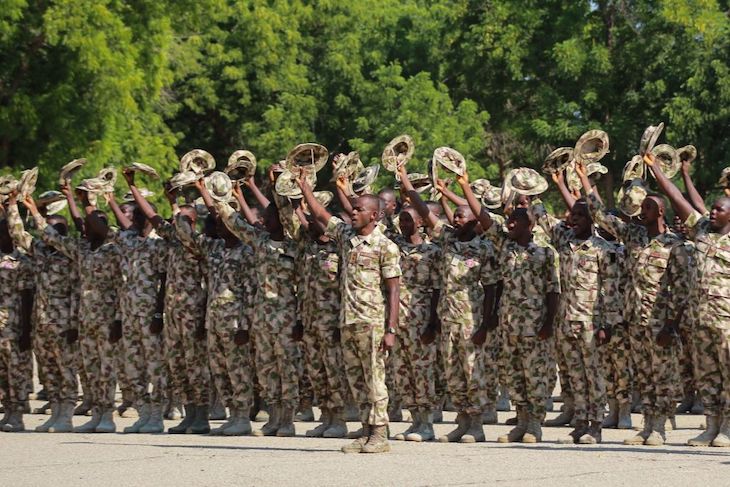For two decades, violent, extremist organisations have had a devastating impact on the African continent. Attacks by al Qaeda in the Islamic Maghreb (AQIM), Boko Haram, and their splinter group Islamic State West Africa Province (ISWAP) have displaced millions within and across national borders and decimated vital services, education, healthcare, and businesses. Since 2009, Boko Haram have claimed more than 27,000 lives in Nigeria and Cameroon, and as the Nigerian presidential election in February approaches, the terrorist group has renewed its campaign of violence.
British military support for African states is therefore vital in tackling the scourge of violent extremist organisations. The British Army is actively engaged in operations across the globe, with deployments ranging from peacekeeping to providing humanitarian aid, from enforcing anti-terrorism measures to helping combat the international drugs trade.
In August 2018 the UK signed its first defence and security agreement with Nigeria, Africa’s most populous country and largest economy. The UK is providing the Nigerian military with equipment to contend with improvised explosive devices, and training army units before they are deployed to the northeast of the country where Boko Haram and ISWAP operate. British military personnel have so far trained over 30,000 Nigerian troops to ensure that a corridor of terrorism does not open up through the Sahel and North Africa to the Middle East.
Nigeria has made significant progress in the fight against the insurgencies. It is worth remembering that shortly before President Muhammadu Buhari took office, Boko Haram had reached Nigeria’s capital city, bombing the United Nations building and attacking the headquarters of the State Security Service. At the end of 2014, which saw the brazen abduction of the Chibok schoolgirls, the extremist group occupied an area the size of Belgium in northeast Nigeria.
But within the first few months of Buhari’s presidency, Boko Haram were forced to retreat to remote forest regions and the mountains. Buhari’s hard-earned popularity in the north of the country, and his experience as a military leader provided the necessary political capital to ramp up effective counter-insurgency operations. Much of the territory claimed by Boko Haram and administered under their barbaric regime has been reclaimed. The operations were an undoubted success.
However, a recent deadly attack near the Nigeria-Chad border in November last year, shows both Boko Haram and ISWAP are far from defeated. As Nigeria approaches new elections early next year, there is no doubt that Boko Haram will concentrate their reduced resources on a tactical campaign of terror.
In this context, the skills and knowledge the UK has gleamed from counter-insurgency operations in multiple theatres of war mean we are able to offer Nigeria significant help. The lessons of Northern Ireland, the Balkans, Afghanistan, and Iraq mean that the British armed forces are highly experienced and capable teachers.
The ultimate objective of such operations is to help bring stability. Destabilisation is both a cause and effect of violent extremism and is driving migration from West Africa to Europe. The death of thousands who make the trip across the Mediterranean, and how to accommodate the arrival of those who survive the journey and make it to European soil, continue to represent one of Europe’s most significant policy challenges.
Yet despite the British Army’s valuable expertise and ability to successfully deliver such operations, UK support for West African states is dwarfed by both France and the United States. During 2018, the United States doubled its assistance to the anti-insurgent operation in Africa’s Sahel region to $111 million, as the fight against the far-from ‘defeated’ Islamic State shifts further afield. Meanwhile, France has 4,500 personnel deployed in this crucial area, supporting the 12,000-strong UN peacekeeping force.
The impact of the UK’s support for the Nigerian military demonstrates both the capability of the British Army, and the importance of life-saving operations that currently seem far from the thoughts of policy makers in Whitehall. The UK-Nigeria model ought to be replicated elsewhere in the region, following the example set by allies in committing resources to the Sahel and West Africa. The British Army’s role in Nigeria serves as a reminder as to why overseas military assistance really does matter.
General Sir Mike Jackson was UK Chief of the General Staff from 2003 to 2006.






Comments